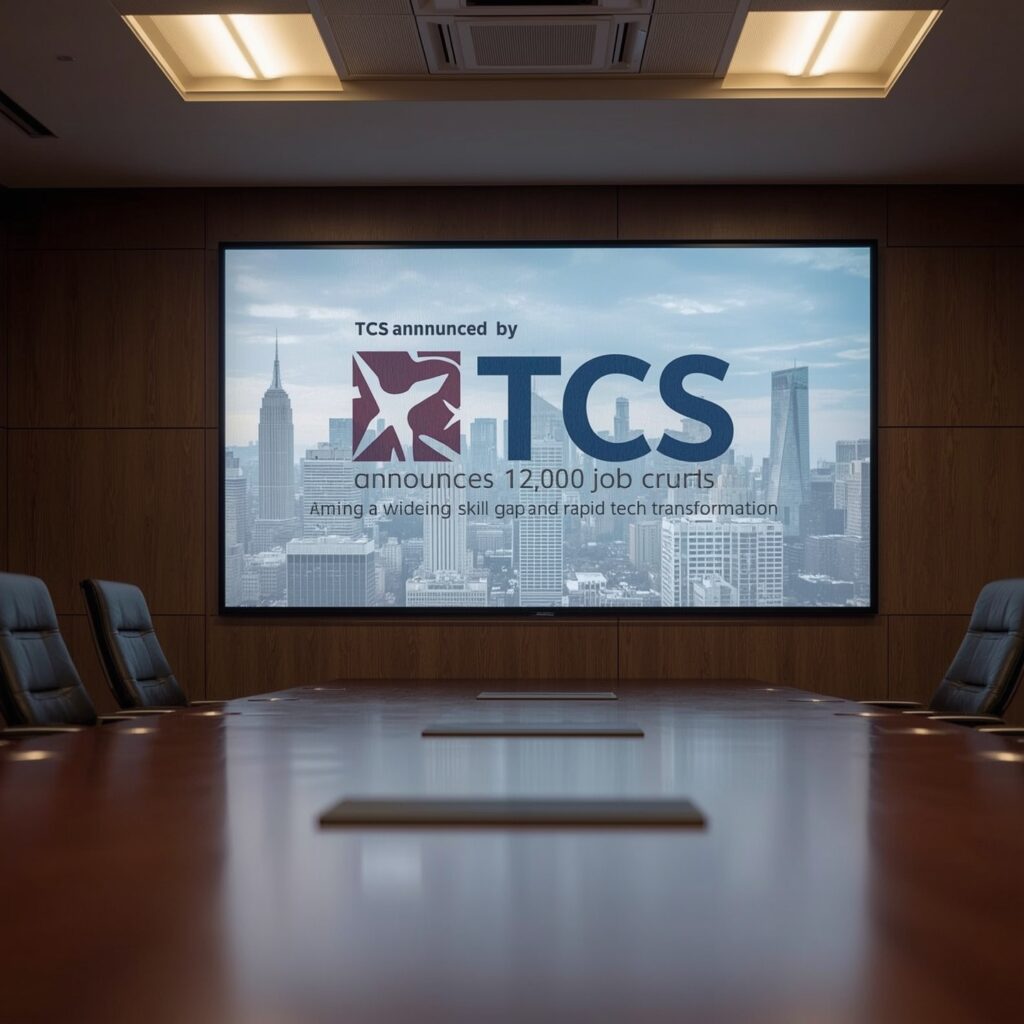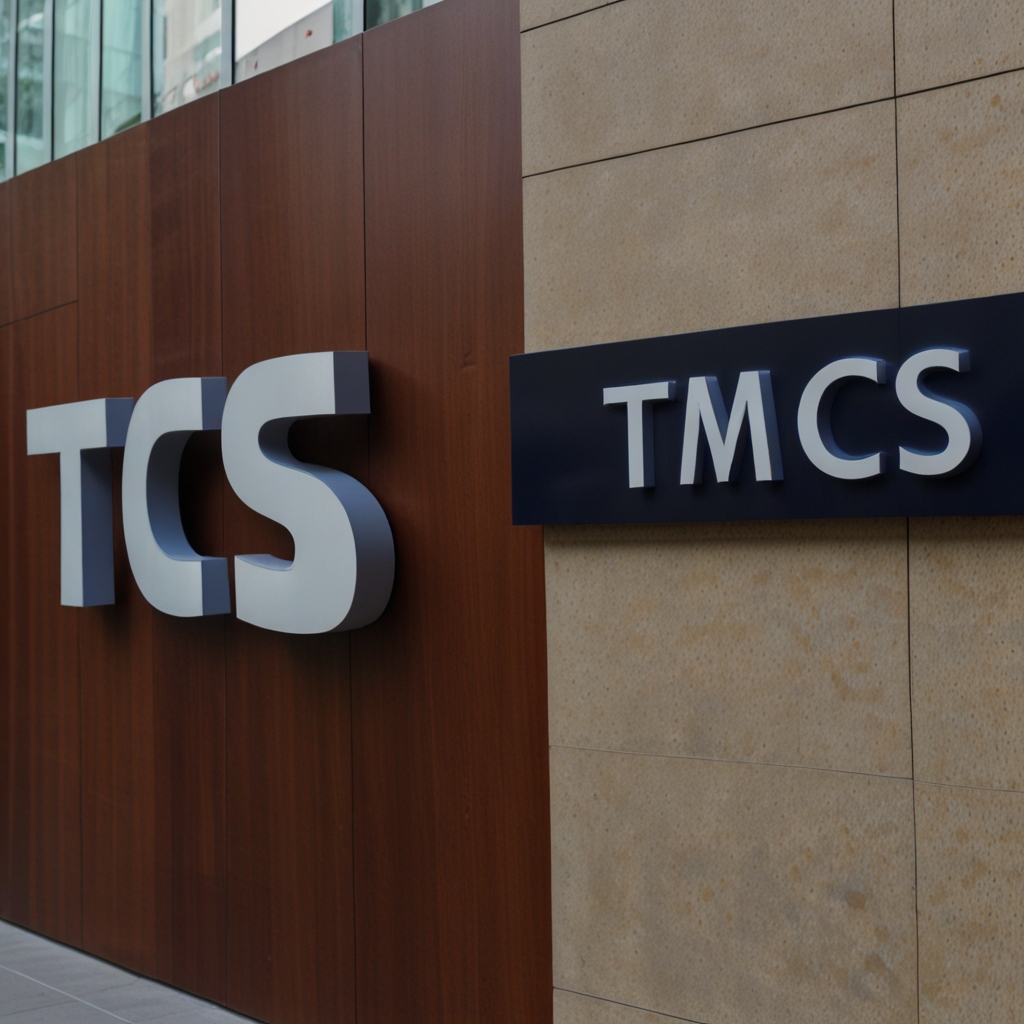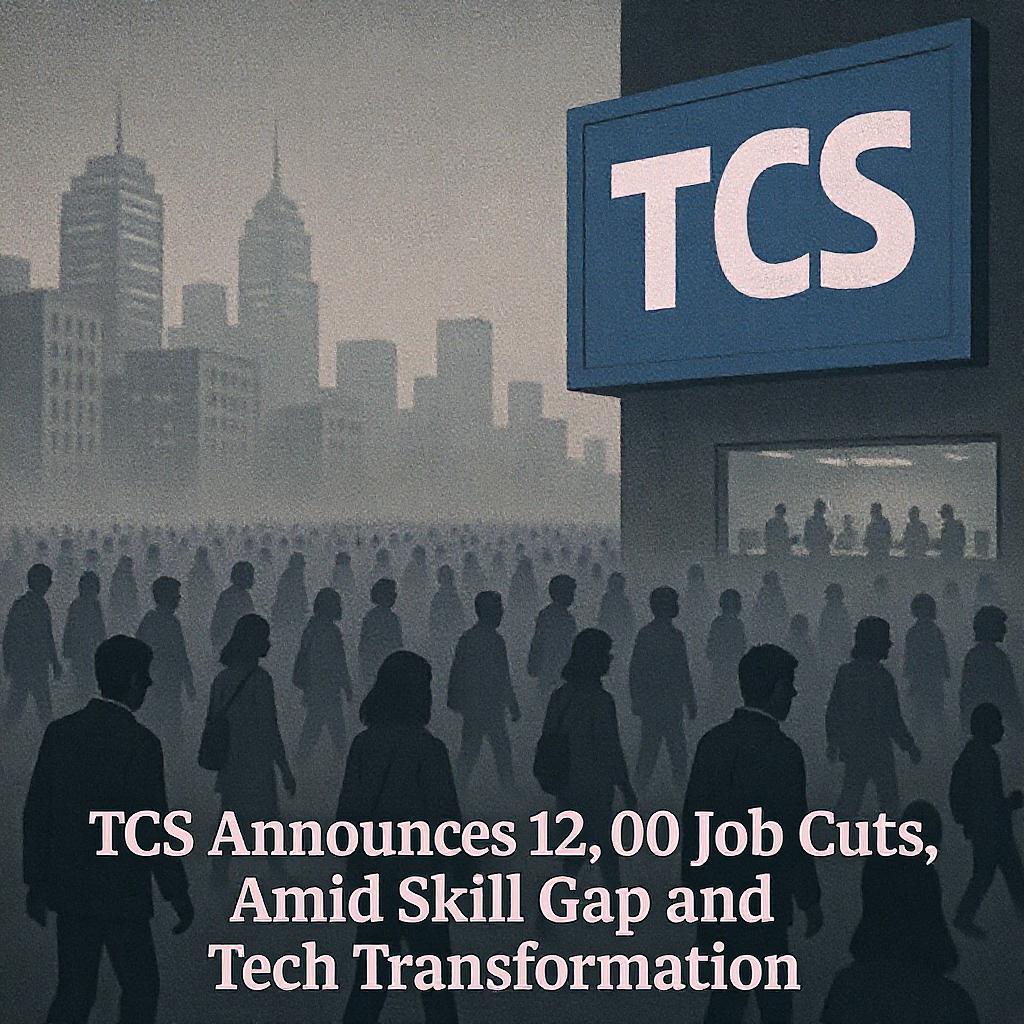
Table of Contents
Tata Consultancy Services (TCS), India’s largest software services provider, is undertaking a significant workforce reduction, planning to let go of approximately 2% of its global employees – roughly 12,200 people – over the fiscal year 2026 (April 2025 – March 2026). This decision, impacting staff across countries and domains, particularly at middle and senior levels, is framed by CEO K Krithivasan as a difficult but necessary step to make the company “more agile and future-ready” amidst rapid technological disruption.
Krithivasan emphasized that the layoffs are not a direct result of AI-driven productivity gains or immediate macroeconomic pressures, but rather a strategic realignment to address future skill requirements. While TCS has heavily invested in AI deployment and employee reskilling, the CEO stated that redeployment efforts for certain roles proved ineffective. He described the move as one of the toughest decisions of his tenure, crucial for building a “stronger TCS.” The company pledges compassionate handling, offering notice pay, enhanced severance packages, extended insurance benefits, and outplacement support to affected employees.
This restructuring follows closely on the heels of a revised employee “bench” policy introduced by TCS. The new policy mandates a minimum of 225 billable days annually and limits unallocated “bench” time to less than 35 days. Krithivasan positioned this not as an “efficiency drive” but as an incentive to keep employees productively engaged on client projects year-round. However, impacted employees and sources describe a direct link between exceeding bench time limits and the current layoffs.
Employees facing termination report being called into meetings with HR and pressured to resign immediately. According to one anonymous employee with over four years’ experience, agreeing to resign results in approximately three months’ salary as severance. Refusal leads to termination without severance benefits. An email seen by Moneycontrol confirmed an employee’s immediate release upon resignation submission.
Industry analysts observing TCS interpret the cuts as indicative of a broader, AI-driven industry shift. They note declining relevance for traditional skills like software testing, resistance to change among some senior staff, and evolving client demands. Projects are becoming smaller and shorter, requiring fewer personnel as clients increasingly push software providers to leverage AI for efficiency gains. As a major private sector employer, TCS’s move could potentially trigger similar restructuring efforts among its competitors.
Adding to the context of workforce adjustments, the All India IT Employees Union (AIITEU) reported that TCS has also delayed the onboarding of at least 500 lateral hires who were due to join in June-July 2025. This occurs against a backdrop of recent client hesitancy acknowledged by Krithivasan. He noted delays in client decision-making and some project scope reductions during the April-June quarter, though he expects these deferred projects to materialize in the coming quarters, emphasizing there were very few outright cancellations. The confluence of strategic reskilling, stricter utilization policies, and evolving market demands defines this significant restructuring phase for TCS.
TCS Tightens Billability Rules

Tata Consultancy Services (TCS) has implemented a stringent new billability policy, announced by its Resource Management Group (RMG) on June 12th. The policy places significant responsibility on employees to actively seek project assignments from the RMG. The core requirement mandates that employees must maintain a rolling 12-month billability of at least 225 days at any given time. Furthermore, the policy strictly limits the time an employee can remain unallocated on the “bench” to a maximum of 35 days per year.
Failure to meet these billability targets or exceeding the bench time limit will result in disciplinary action, explicitly including the potential termination of employment (“cessation of service”).
This move aligns with a broader industry trend identified by Moneycontrol in March. Leading IT services firms have been systematically reducing average bench durations and sizes over the past 18 months to bolster margins and improve utilization rates. Industry data from UnearthInsight indicates the current average bench time has fallen to 35-45 days, down from 45-60 days during the high-growth periods of FY20 and FY21. This trend of tighter bench management is expected to persist into FY26.
TCS Workforce Reduction Plan

Tata Consultancy Services (TCS) is planning a significant workforce reduction, targeting approximately 2% of its global employees—roughly 12,200 workers—over the course of the current financial year (April 2025 to March 2026) 52. This restructuring will impact employees across all geographic locations and operational domains where the company has a presence, marking a strategic shift despite TCS having recently increased its workforce by 5,090 employees in the April-June 2025 quarter 58.
The layoffs, described by CEO K. Krithivasan as essential for making TCS “future-ready and agile,” stem from challenges in redeploying staff whose skills no longer align with evolving technological demands, particularly in AI-driven workflows 57. While the company has invested in reskilling and internal deployment initiatives, certain roles—especially at middle and senior levels—could not be feasibly transitioned 711. This decision coincides with the controversial implementation of a new “bench policy” that mandates employees maintain at least 225 billable days annually and caps non-project “bench time” at 35 days per year 510. Failure to meet these utilization targets can result in disciplinary actions, including termination 10.
Affected employees are expected to receive notice period pay, severance packages, extended insurance coverage, and outplacement support 57. The move highlights the tension between TCS’s recent net headcount growth and its push for operational efficiency amid industry-wide technological disruption 811.
TCS Layoffs Driven by Strategic Realignment
Tata Consultancy Services (TCS) is implementing fresh layoffs impacting approximately 12,200 employees (2% of its global workforce) primarily to position the company as “future-ready and agile” amidst rapid technological evolution. CEO K. Krithivasan explicitly stated the decision is not driven by immediate AI productivity gains or macroeconomic pressures, but by a strategic imperative to align the workforce with emerging skill demands, particularly those driven by artificial intelligence (AI).
Krithivasan explained that while TCS is aggressively deploying AI and has invested significantly in reskilling and redeploying existing staff (“associates”), certain roles, especially at middle and senior levels, could not be effectively transitioned to meet future operational needs. “We are pushing new technologies, especially AI, and changes in operating models. Ways of working are changing… However, there are some roles where redeployment has not been effective,” he stated. This skills mismatch necessitated the difficult workforce reduction.
The CEO emphasized the gravity of the decision, calling it “one of the toughest decisions I have ever had to make as a CEO,” but essential for building a stronger TCS long-term. The layoffs, occurring between April 2025 and March 2026, affect employees across all countries and domains. Recognizing the human impact, TCS is offering affected employees notice period pay, a severance package, extended insurance benefits, and outplacement support to assist their transition. The move underscores the intense pressure on IT giants to rapidly adapt their talent pools to an AI-centric future, even amidst recent headcount growth.
TCS New Bench Policy: Key Requirements and Impacts
TCS’s revised bench policy, effective June 12, 2025, mandates that all employees maintain a minimum of 225 billable days annually, effectively capping non-project “bench time” at just 35 business days per year 134. Bench employees—those between projects but still on payroll—must now proactively engage with the Resource Management Group (RMG) to secure assignments, with primary responsibility placed on associates to seek allocations 39. Failure to meet these utilization targets triggers disciplinary actions, including impacts on compensation, promotions, overseas opportunities, and potential termination 34.
During bench periods, employees face stringent requirements:
- Mandatory Upskilling: 4–6 hours daily must be dedicated to learning via platforms like iEvolve and LinkedIn 34.
- Office Attendance: Physical office presence is compulsory to accelerate deployment, with remote work only permitted in exceptional cases 36.
- Project Flexibility: Employees report being pressured into roles misaligned with their skills (e.g., Java-trained staff assigned to support projects) 410.
The policy has sparked significant backlash. Employees describe an “atmosphere of fear and coercion,” with unions like NITES filing complaints with the Ministry of Labour, calling the rules “inhumane” and “exploitative” 178. Criticisms focus on threats of termination and withheld experience certificates for those missing the 35-day deadline 8. However, TCS leadership defends the policy as a necessary step toward “agility and future-readiness,” citing evolving client demands and AI-driven industry shifts 269. This aligns with a broader industry trend where average bench times have shrunk to 35–45 days (down from 45–60 days in 2020–2021) to boost utilization rates amid margin pressures 38.
